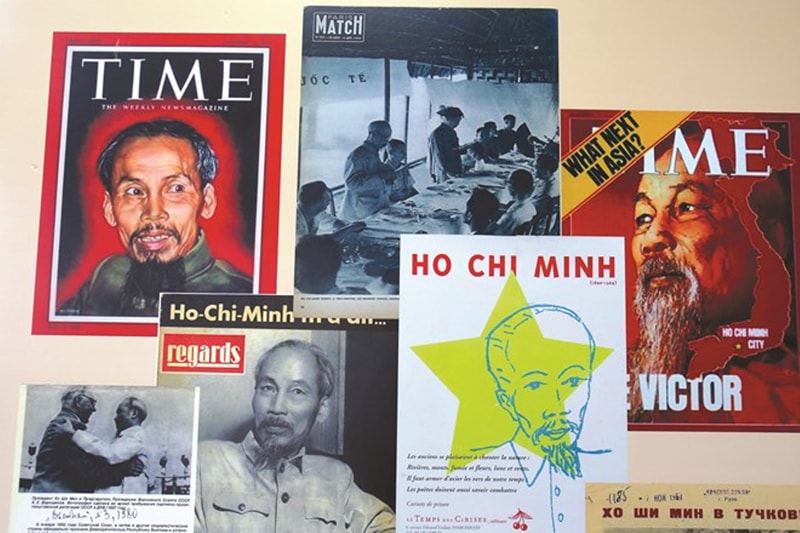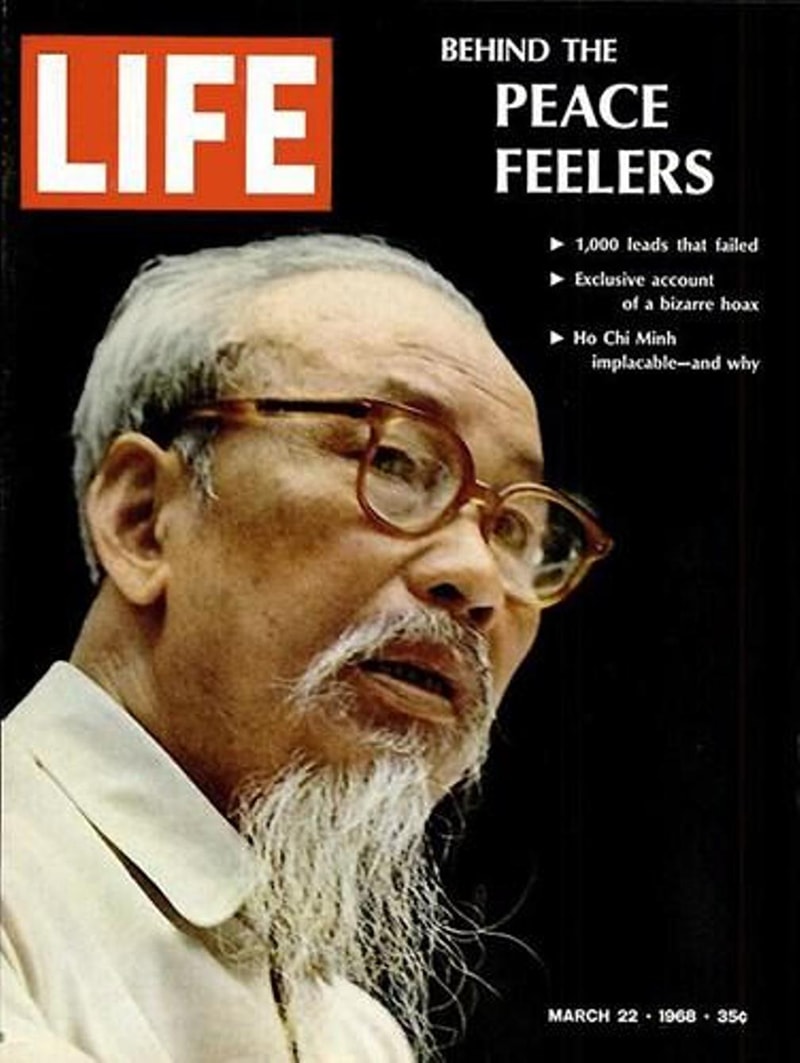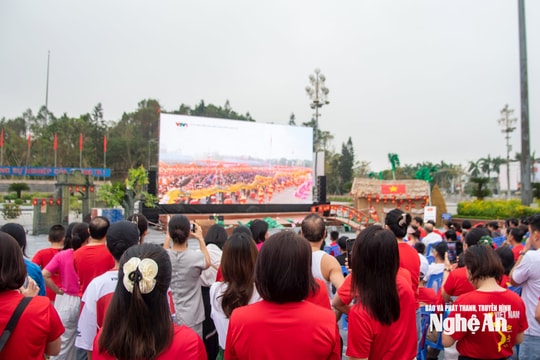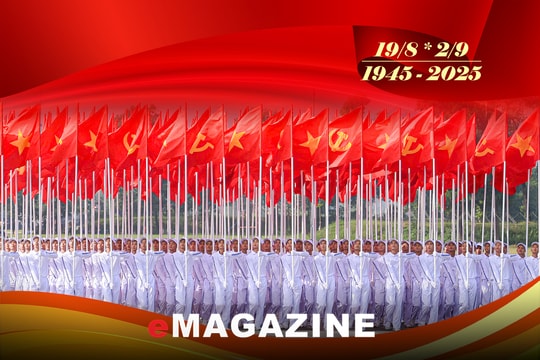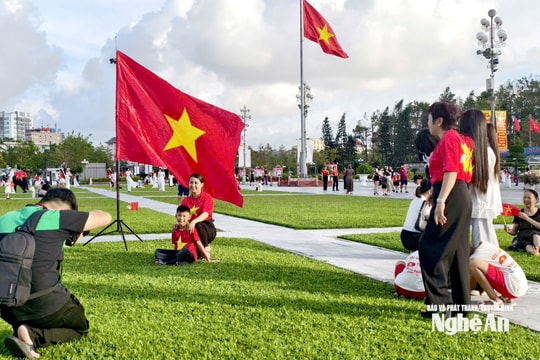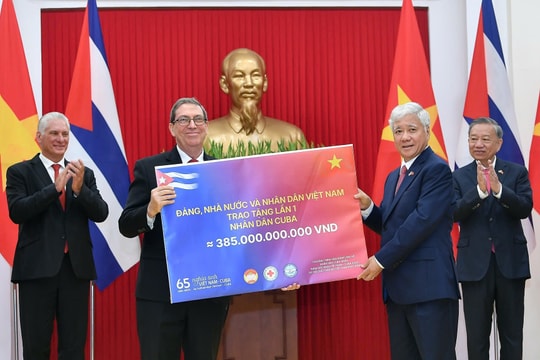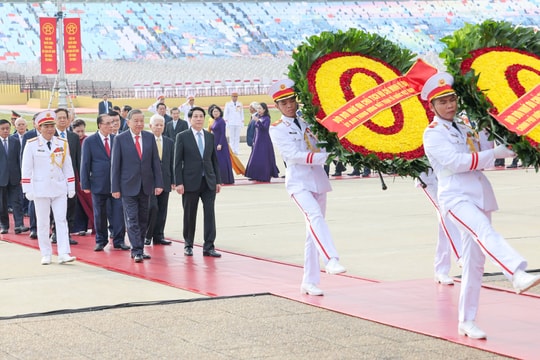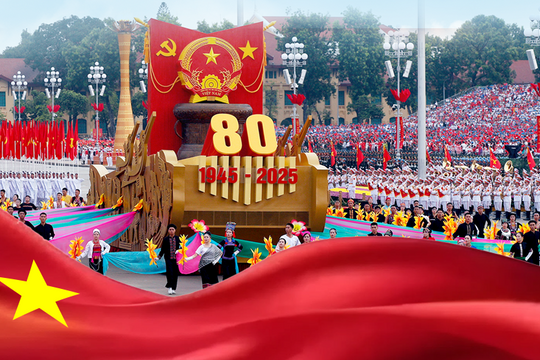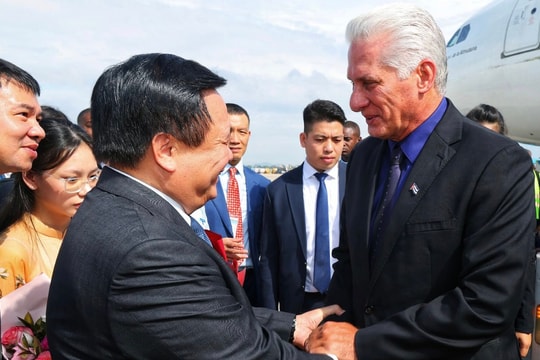Ho Chi Minh - A prominent politician in international media
According to incomplete statistics, there have been over 200 works and research projects, hundreds of magazines, and thousands of articles written about President Ho Chi Minh.
The phrase Vietnam - Ho Chi Minh, since September 2, 1945 and especially since the Dien Bien Phu victory on May 7, 1954 to September 2, 1969, has been familiar to foreigners for decades. And until today, in the 21st century, many foreigners still consider this a topic to write books and decode the mysteries of the victory of the Vietnamese people through the image of President Ho Chi Minh.
|
| Image of President Ho Chi Minh on international newspaper covers. |
The number of people researching President Ho Chi Minh, books and articles about him by foreign authors has not yet been accurately determined. According to incomplete statistics, there are over 200 works and research projects, hundreds of magazines, thousands of articles by researchers of history, culture, philosophy, psychology, anthropology, cultural studies, poets, reporters of major newspapers in the world... written about President Ho Chi Minh.
Today, the name and career of President Ho Chi Minh have been respectfully recorded in world encyclopedias and in dictionaries of outstanding human beings.
Right from the time the name “Democratic Republic of Vietnam” was born and faced the French colonialists, the name of President Ho Chi Minh was a “mystery” of the foreign press at that time. Time magazine published on September 9, 1946 had an article “Ho Chi Minh, Who are you?” stating that Uncle Ho was a “very strange” character. The article summarized Uncle Ho’s life of searching for a way to save the country since 1911 and when he was called Nguyen Ai Quoc, he traveled through France, Russia, Thailand, Hong Kong, China, etc.
During the Fontainebleau Conference to discuss peace in Indochina between the French Government and the Democratic Republic of Vietnam, the newspaper was very sympathetic when it saw Uncle Ho's elegant demeanor: "Mr. Ho appeared with a small figure and he often gave flowers to female journalists."
|
| Portrait of President Ho Chi Minh on the cover of Life magazine. |
The New York Times, Sunday issue May 9, 1954 wrote: “He is not only an idol of the Vietnamese people but is also recognized by France as the first spokesman of Vietnam… This Vietnamese person has left a deep impression and is especially sympathetic to foreign officials and journalists.
A Frenchman, who later became the French High Commissioner in Indochina, also had to admit that Mr. Ho was a man of very strong and respectable character…Today, no name in Asia is as famous as the veteran communist and nationalist Ho Chi Minh. He is more a symbol and a legendary figure than a real person.
Time magazine, issue dated November 22, 1954, published a portrait of President Ho Chi Minh on its cover and devoted 5 pages to his life and career, along with Vietnam's victory over France in the Dien Bien Phu campaign.
This magazine emphasized: “With the victory (Dien Bien Phu), Ho Chi Minh's prestige reached a new peak in Asia. Nationalists in many countries, although they were anti-communist, could not help but be proud of the feat of an Asian army defeating their former “masters” from Europe to…
Under the leadership of Ho Chi Minh, the Viet Minh force had the most effective jungle fighting army in Southeast Asia, the most talented general in Southeast Asia, Vo Nguyen Giap, the most solid political organization headed by Ho Chi Minh, and experienced leadership.
The New York Times, on Sunday, March 28, 1965, in the article “Uncle Ho Defies Uncle Sam”, wrote: “Hidden in the flower and green trees surrounding the former French Governor General’s building in Hanoi is a small house with simple furniture. Formerly a gardener’s room, it is now home to a frail old man whose smile always warms the hearts of others. He is the man who destroyed the French colonial system in Indochina and now defies American power in a new war that could be the premise for a collapse or a greatest victory”.
After meeting Uncle Ho in 1967, American journalist Harrison S. Salisbury wrote: “He lived simply and austerely in a small and simple annex behind the old governor's palace in Hanoi, was very polite when drinking tea with guests (giving a rose to female guests, telling a humorous joke to male guests), all of which were elements of myth and legend”…
When writing about Uncle Ho's 60 years of revolutionary activities, journalist Harrison S. Salisbury wrote: "Americans often think of Ho Chi Minh through the war in Vietnam and through America's involvement... He somehow brought all of America's military technology to a dead end in an unprecedented battle between a modern-day David and Goliath."
The French newspaper Le Figaro wrote about Uncle Ho: "Uncle Ho Chi Minh is the one who forced France to abandon its most important colony, Indochina... He is one of the most famous and most surprising figures of our century."
The Washington Post, with the largest circulation and influence in the US, wrote after Uncle Ho's funeral in September 1969: "No great activist in this vibrant decade of national revolution lived as long, had such great influence in the world, and implemented as many policies and strategies with as many great challenges as the Vietnamese communist leader - Mr. Ho Chi Minh.
A slender man, but with bright, intelligent eyes, he has gone through many careers, from being a waiter on a ship, then working as a dishwasher, a caterer, a teacher, a photo developer and becoming a tireless organizer, rising above his contemporaries.
|
| Latin America Magazine. |
The New York Times, September 4, 1969, wrote: "Among the politicians of the 20th century, Mr. Ho Chi Minh was a prominent figure for his perseverance, resilience and patience in seeking the goal of independence for Vietnam and his success in reconciling communism with nationalism."
After Uncle Ho passed away, the World Daily newspaper published dozens of consecutive issues with many articles under the title “Ho Chi Minh’s Legacy”. The issue published on September 20, 1969 wrote: “Ho Chi Minh not only found the path to freedom, but also founded and built the leadership tool, the Marxist-Leninist party… He became a symbol of heroism and revolution throughout the world. Ho Chi Minh is one of the greatest figures of the era.
His life and works live on forever to inspire generations to come and generations yet to be born. This great Vietnamese leader has left behind a spiritual legacy that inspires the will of the people and inspires great actions in the cause of freedom and communism among revolutionaries all over the world!”.
“Vietnam may have its ups and downs, but the memory of the communist leader born 115 years ago will last forever.”,Journalist Denis Gray of the AP news agency affirmed. In the article “Ho Chi Minh - Victory of a Vision” - Dierk Szekielda, the German magazine In Asien wrote: “President Ho Chi Minh was a patriot and the one who enlightened the revolutionary struggle of the Vietnamese people, a man of extraordinary qualities”.
Canadian journalist George Fogarasi recounted in the article “Uncle Ho’s phoenix rises from the ashes of war” - The Straits Times, Singapore wrote: “I asked a cyclo driver about Uncle Ho, this person had spent time in re-education camps because he had been in the ranks of the old Saigon government. But he respected Uncle Ho’s morality and called him a true Vietnamese.”
Time magazine voted Uncle Ho one of the 100 most influential people of the 20th century. Manila Times wrote: “Mr. Ho is an icon of Asia. Not only did he succeed as an exemplary leader, wholeheartedly serving the interests of the people, but he also stated an unprecedented truth: A nation, no matter how small, if determined, can resist even the strongest military powers.”
The Sri Lankan newspaper Tien Len emphasized: “He (President Ho Chi Minh) made modern history and is one of the most noble and respected figures of our time. His long-term and glorious leadership in the struggle for freedom in Vietnam has influenced not only Vietnam but also the development of events around the world.”
Time magazine, April 13, 1998, published an article by writer Stanley Karnow: “President Ho Chi Minh combined patriotism and communism, perfecting the art of guerrilla warfare. Any concession, Ho Chi Minh realized, would mean a permanent division of the country and rob him of his dream of unifying Vietnam under his banner…”
|
| Image of Uncle Ho in foreign press. |
An interview with BBC (May 2002) by American professor William Duiker, author of “Ho Chi Minh - A Life” - 2000, to partly “decode”: Who is President Ho Chi Minh, in the eyes of foreigners.
BBC: Looking outside of Vietnam, why are there still Western researchers like you interested in Ho Chi Minh? Just recently, Dr. Sophie Quinn-Judge also published a book about Ho, and you published one in 2000. Why are you so interested in learning about Ho Chi Minh?
Professor William Duiker: I have to go back to the war in Vietnam. At that time, for me, to understand that war, to understand why the Vietnamese fought against the French and later the Americans, I had to find a key for research.
The key is the character of Ho Chi Minh. He is the embodiment of the resistance in Vietnam, with the prestige of maintaining the unity, though not the complete unity, of the Vietnamese revolutionary movement. I think, for anyone who wants to understand the Vietnam War, learning about Ho Chi Minh is indispensable.
BBC: So what have you learned about Ho Chi Minh?
Professor William Duiker: In my opinion, Ho Chi Minh was very successful in transforming the two driving forces in Vietnamese society at that time into himself. That is, in his personal style, Ho Chi Minh expressed the desire of the Vietnamese people, wanting justice, including social justice and political justice, the right to be treated fairly by outsiders.
And the second thing he demonstrated was creating a revolution with the goal of bringing a better life to the Vietnamese people.
On November 12, 2013, Russian President V. Putin visited Hanoi for an official visit to Vietnam. He visited President Ho Chi Minh's residence and wrote in the guestbook: "Humanity has entered the 21st century, a century of peace, progress and prosperity. But Ho Chi Minh's ideological and moral values are still the torch, the symbol of a future culture... And so history will forever remember him as a saint."

